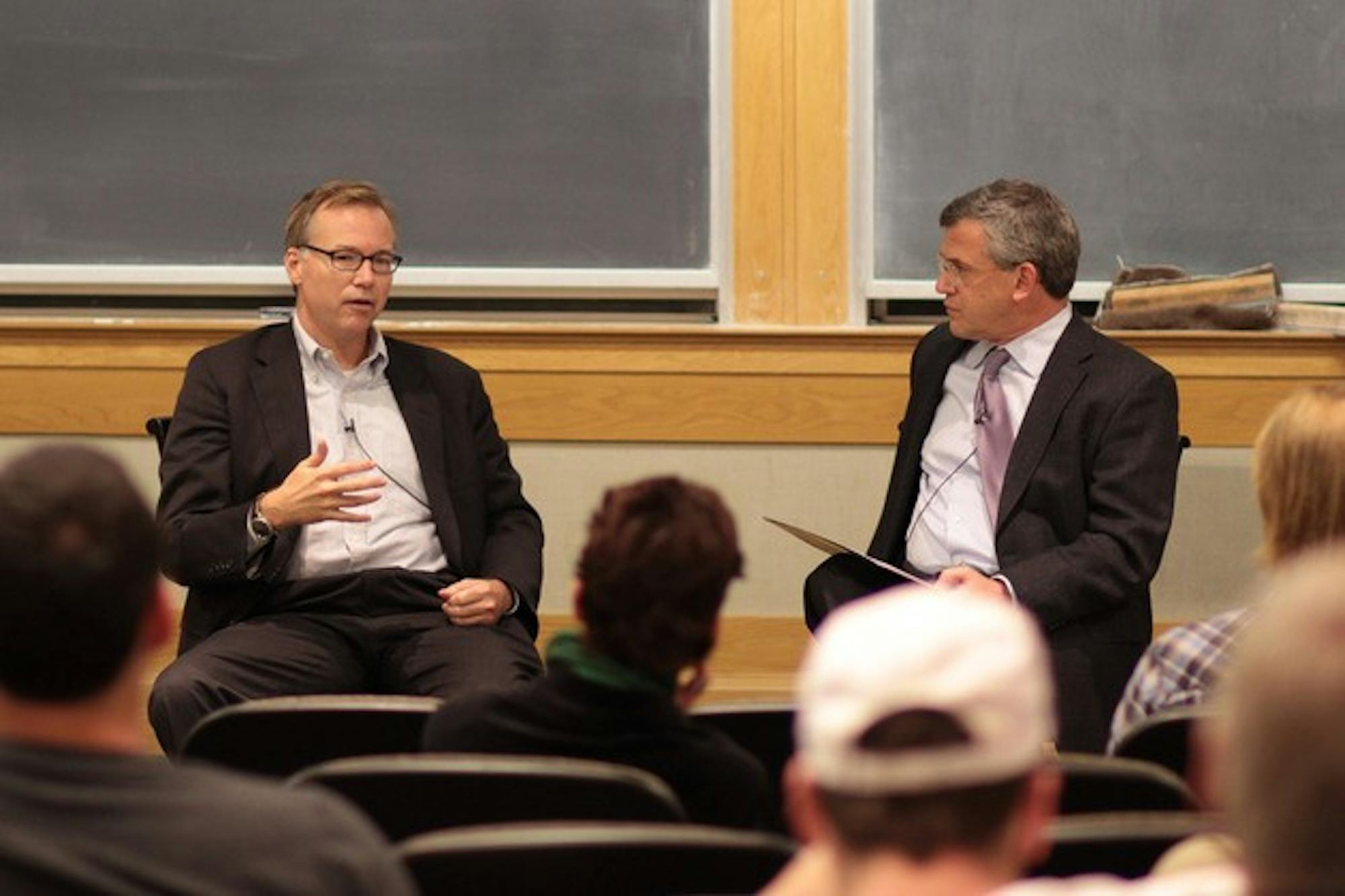During a conversation with Dickey Center for International Understanding director Daniel Benjamin Thursday in Filene Auditorium, Coll discussed his time covering the ExxonMobil oil spill, the CIA and tracking the bin Laden family, as well as his thoughts on the evolving role of journalism and the ways in which he approaches stories.
Coll said he doubted the U.S. government had ever looked at the Bin Laden family's documents, which he said helped to inform his perspective by adding color to the family's history. The documents revealed a story in the modernization of Saudi Arabia, both in the sudden wealth that resulted from the oil boom and the generation that came of age during that time.
"When you read about Saudi Arabia in the popular press, it's hard to get any of that texture or complexity or flavor of the Saudi global identity," Coll said.
He wanted to write a multi-generational narrative of the bin Laden family and had traveled to Saudi Arabia several times, but without the footprint of legal documents left in London, the United States and other parts of the world he would have struggled to find material.
"There are really no points of entry for a journalist normally, when you go into a new country you have academia, universities, professors, civil society, newspapers and media companies where you can go," Coll said. "Saudi Arabia basically has none of that."
Osama bin Laden is typically portrayed as a man who lived a normal life and descended into radicalism, but Coll said bin Laden was respected by his family for pursuing what was seen as a "righteous cause celebrated in public."
Coll elaborated on his other reporting experiences, including his time as a foreign correspondent and managing editor during his 20-year career at The Washington Post.
"About halfway through the ExxonMobil story, I realized my last three projects had been CIA, bin Laden and ExxonMobil, and ExxonMobil was definitely the hardest," Coll said. "It was the only one where I was actually afraid that a white van might pull up someday and take me off the street."
Journalism's role has changed in a world shared with government whistleblowers like Julian Assange and Edward Snowden, Coll said.
"We are in a period of extraordinary disruption to our regime of expression and press law," he said. "We had a period of extreme stability that ends with WikiLeaks, and are in a new globalized era of arguing about expression and the public interest."
Assange and Snowden indiscriminately dumped all of their information online without fully understanding all of the content, Coll said. Traditionally journalists sort through sensitive materials before disseminating them.
Journalism adapted to new technology and will continue to do so as information becomes increasingly easier to access. Readers have more control over their "information universe," and many are opting to read entertainment news over other sources, Coll said. He noted an emerging information gap, corresponding with growing income disparity.
"At the top end of the spectrum, individuals know more and are absorbing more than they did a generation ago, but at the bottom of the information spectrum people are opting out," Coll said. "It's not that they don't have basic access, but they are choosing ignorance." Dickey Center events intern Alexander Anthony Lopez '15 said he enjoyed the event.
"I'm so grateful for being able to sit in a room and ask him questions about his stories and life, in which he has not only taken on such fascinating topics as the oil industry, the bin Laden family and the CIA but that he is able to so clearly and concisely and eloquently share with us his views on the state of these issues," Lopez said.
Coll is the recipient of two Pulitzer Prizes, one for explanatory journalism and one for general nonfiction. Coll served as president of the New American Foundation from 2007 to 2012 and is currently a staff writer for The New Yorker.




